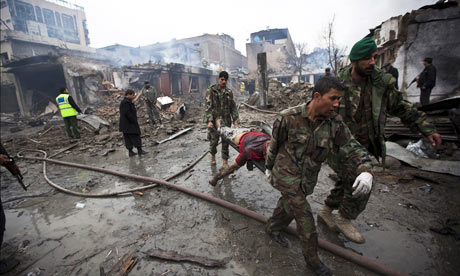China stands for 5 principles in a political settlement of the Syrian issue
- By Wang YiChina.org.cn – Jan 21, 2014
First, the issue of Syria must be resolved through political means.
China welcomes and supports the convocation of Geneva II on 22 January 2014. This will be an important opportunity to promote the political settlement of the Syrian issue. China calls on all parties in Syria to actively participate in Geneva II.
Military action is no answer to the issue of Syria. All parties should voice their demands through dialogue and negotiation rather than seeking gains through armed conflict. We call on all parties in Syria to seize the opportunity presented by Geneva II, commit themselves to the full, balanced and effective implementation of the Geneva Communiqué, and support and work closely with the UN Secretary-General and the Joint Special Representative of the United Nations and the League of Arab States for Syria in their mediation efforts.
The meeting in Geneva, marking the beginning of dialogue and negotiation, should be an ongoing process. Thus, a clearly defined follow-up mechanism is needed to keep the dialogue, negotiation and other political efforts going. It is essential that negotiation is not just launched, but more importantly pushed forward until practical results are achieved. The meeting in Geneva should be an open platform and the door of peace talks should be open to all parties in Syria committed to a political settlement so that they will take an active part in the process and play their role.
While dialogue and negotiation are going on, all parties in Syria must put an end to all armed conflict and violence, taking credible and visible actions such as humanitarian pause, ceasefire region by region or phase by phase, and disengagement as first steps to build and enhance mutual trust. The international community should provide assistance within the UN framework to support and monitor the ceasefire.
Second, the future of Syria must be decided by its own people.
To resolve the issue of Syria, efforts must be made at the domestic, regional and international levels. The political transition process in Syria must be Syrian-led, and the future of Syria, ultimately, can only be decided by the Syrian people themselves.



